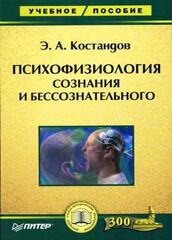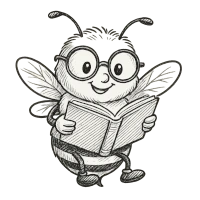Список рекомендуемой литературы
Что еще можно почитать на эту тему:
Bartholomew, Mel. Square Foot Gardening. Emmaus, PA: Rodale Press, 1981.
Beatley, Timothy. Green Urbanism: Learning from European Cities. Washington D.C.: Island Press, 2000.
Berry, Thomas. The Dream of The Earth. San Francisco: Sierra Club Books, 1988.
Bice, Barbara идругие. Conserving and Enhancing the Natural Environment: A Guide for Planning, Design, Construction, and Maintenance on New and Existing School Sites. Baltimore: Maryland State Dept, of Education, 1999.
Blakey, Nancy. Go Outside: Over 130 Activities for Outdoor Adventures. Berkeley, CA: Tricycle Press, 2002.
Brett, A., and R. Moore.The Complete Playground Book. New York: Syracuse University Press, 1993.
Bluell, Lawrence. The Environmental Imagination: Thoreau, Nature Writing, and the Formation of American Culture. Cambridge, MA: Harvard University Press, 1995.
Carson, Rachel. The Sense of Wonder. New York: Harper & Row, 1956.
Chard, Philip Sutton. The Healing Earth: Medicine for the Troubled Soul. Minocqua, WI: North Word, 1994.
Chawla Louise. In the First Country of Places: Nature, Poetry, and Childhood Memory. Albany, NY: State University of New York Press, 1994.
Growing Up in an Urbanising World. London: UNESCO, 2002.
Cobb, Edith. The Ecology of Imagination in Childhood. New York: Columbia University Press, 1977.
Corbett, Michael, Judy Corbett, and Robert L. Thayer. Designing Sustainable Communities: Learning from Village Homes. Washington, D.C.: Island Press, 2000.
Cornell, Joseph. Sharing Nature with Children. Nevada City, CA: Dawn Publications, 1979.
Dannenmaier, M. A Child's Garden: Enchanting Outdoor Spaces for Children and Parents. New York: Simon & Schuster, 1998.
Dewey, John. The Child and the Curriculum. Chicago: University of Chicago Press, 1902.
Gardner, Howard. Intelligence Reframed: Multiple Intelligences for the 21st Century. New York: Basic Books, 1999.
Gil, E.The Healing Power of Play. New York: Guilford Press, 1991.
Goldsmity, Edward. The Way: An Ecology World-View. Boston: Shambala, 1993.
Grant, Tim and Gail Littlejohn, eds. Greening School Grounds: Creating Habitats for Learning. Gabriola Island, British Columbia: New Society Publishers, 2001.
Guiness, B. Creating a Family Garden: Magical Outdoor Spaces for All Ages. New York: Abbeville Press, 1996.
Harrison, George. Backyard Bird Watching for Kids: How to Attract, Feed, and Provide Homes for Birds. Minocqua, WI: Willow Creek Press, 1997.
Hart, Roger. Children's Experience of Place. New York: Irvington Publishers, 1979.
Children's Participation: The Theory and Practice of Involving Young
Citizens in Community Development and Environmental Care. London: Earthscan, 1997.
Hoffman, Edward. Visions of Innocence: Spiritual and Inspirational Experiences of Childhood. Boston and London: Shambala, 1992.
Jaffe, Roberta идругие. The Growing Classroom: Garden-Based Science. New York: Pearson Learning, 2001.
Johnson, Julie M. «Design for Learning: Values, Qualities and Processes of Enriching School Landscapes»/Washington D.C.: American Society of Landscape Architects, 2000.
Kahn, Peter H., Jr. The Human Relationship with Nature: Development and Culture. Cambridge, MA: MIT Press.
Kanner Allen D., Theodore Roszak, and Mary E. Gomes. Ecopsychology: Restoring the Earth, Healing the Mind. San Francisco: Sierra Club Books, 1995.
Kaplan, Rachel, and Stephen Kaplan. The Experience of Nature: A Psychological Perspective. New York: Cambridge University Press, 1989.
Kaplan, Rachel, Stephen Kaplan, and Robert L. Ryan. With People in Mind: Design and Management for Everyday Nature. Washington, D.C.: Island Press, 1998.
Kellert, Stephen, and Peter Kahn, eds. Children and Nature. Cambridge, MA: MIT Press, 2002.
Keller, S. Введениев S.R. Kellert and E.O. Wilson, eds., The Biophilia Hypothesis.
Washington, D.C.: Island Press/Shearwater, 1993.
Kempton, Willett, James S. Boster, and Jennifer A. Hartley.Environmental Values in American Culture. Cambridge, MA: MIT Press, 1995.
Lindquist, I. Therapy Through Play. London: Arlington Books, 1977.
Lovejoy, Sharon. Sunflower Houses: Inspiration from the Garden — A Bookfor Children and Their Grown-Ups. New York: Workman Publishing Company, 2001. Martin, Deborah, Bill Lucas, Wendy Titman, and Siobhan Hayward, eds. The Challenge of the Urban School Site. Winchester Hants, Great Britain: Learning Through Landscapes, 1996.
Metzner, Ralph. Spirit, Self and Nature: Essays in Green Psychology. El Verno, CA: Green Earth, 1993.
Moore, Robin C. Plants for Play: A Plant Selection Guide for Children's Outdoor Environments. Berkeley: MIG Communications, 1993.
Moore, Robin C., and Herbert H. Wong. Natural Learning: The Life of an Environmental Schoolyard. Berkeley: MIG Communications, 1997.
Nabhan, Gary Paul, and Stephen A. Trimble. The Geography of Childhood: Why Children Need Wild Places. Boston: Beacon Press, Concord Library, 1995. National Wildlife Federation. «Schoolyard Habitats: A How-to Guide for K-12 School Communities». Reston, VA: National Wildlife Federation, 2001.
Nicholson, S. «The Theory of Loose Parts». Landscape Architecture 62, номер 1: 30–34.
Orr, David W. Ecological Literacy: Education and Transition to a Postmodern World. Albany, NY: State University of New York Press, 1992.
Earth in Mind: On Education, Environment, and the Human Prospect.
Washington, D.C.: Island Press, 1994.
Pyle, Robert Michael. The Thunder Tree: Lessons from an Urban Wildland. Boston: Houghton Mifflin, 1993.
Quammen, David. Natural Acts: A Sidelong View of Science and Nature. New York. Avon Books, 1985.
Reed, Edward S. The Necessity of Experience. New Haven, CT: Yale University Press, 1996.
Reeves, Diane Lindsey.Career Ideas for Kids Who Like Animals and Nature. New York: Facts on File, 2000.
Richardson, Beth. Gardening with Children. Newtown, CT: Tauton Press, 1998.
Rivkin, R. The Great Outdoors: Restoring Children's Right to Play Outdoors. Washington, D.C.: National Association for the Education of Young Children, 1995.
Roszak, Theodore. The Voice of the Earth: An Exploration of Ecopsychology. New York: Simon & Schuster, 1992.
Ruth, Linda Cain. Design Standards for Children's Environments. New York: McGraw-Hill, 1999.
Schiff, Paul D. Twenty/Twenty: Projects and Activities for Wild School Sites: An Ohio Project Wild Action Guide. Columbus, OH: Ohio Division of Wildlife, Education Section, 1996.
Snyder, Gary. The Practice of the Wild. Washington, D.C.: Shoemaker & Hoard, 2004.
Sobel, David. Beyond Ecophobia: Reclaiming the Heart in Nature Education. Great Barrington, MA: The Orion Society and the Myrin Institute, 1996.
Place-Based Education: Connecting Classrooms and Communities. Great
Barrington, MA: The Orion Society and the Myrin Institute, 2004.
Stine, Sharon. Landscapes for Learning: Creating Outdoor Environment for Children and Youth. New York: Wiley, 1997.
Stokes, Donald, and Lillian Stokes.The Bird Feeder Book. Boston: Little, Brown, 1987.
Takahashi, Nancy. «Educational Landscapes: Developing School Grounds as Learning Places». Charlottesville, VA: University of Virginia, Thomas Jefferson Center for Educational Design, 1999.
Taylor, Anne P., and George Vlastos. School Zone: Learning Environments for Children. New York.: School Zone Publishing Company, 1975.
Titman, Wendy. Special Places; Special People: The Hidden Curriculum of School Grounds. Surrey, England: World Wide Fund for Nature/Learning through Landscapes; New York: Touchstone, 1994.
United Nations.The Convention on the Rights of the Child. New York: UNICEF, 1989.
U.S. Fish and Wildlife Service. «Directory of Schoolyard Habitats Programs». Annapolis, MD: U.S. Fish and Wildlife, 1996.
Wadsworth, Ginger. Rachel Carson: Voice for the Earth. Minneapolis: Lerner Publications, 1992.
Wagner, Cheryl. Planning School Grounds for Outdoor Learning. Washington, D.C.: National Clearinghouse for Educational Facilities, 2000.
Westland, C., andj. Knight. Playing, Living, Learning: A Worldwide Perspective on Children's Opportunities to Play. State College, Pennsylvania: Venture Publishing, 1982.
Wilson, Edward O. Biophilia. Cambridge, MA: Harvard University Press, 1986.









